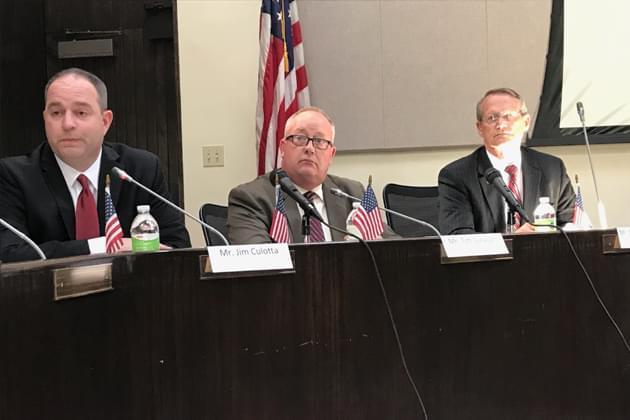
By Howard Packowitz
BLOOMINGTON – The three finalists hoping to become Bloomington’s next city manager said tax increment financing is only one of the available tools to generate economic development, but they’re aware that it’s a controversial method.
District 87 schools, one of the most affected taxing bodies, don’t like that revenue from rising land values can’t be collected during the sometimes decades-long life of the TIF district.
Interim Bloomington City Manager Steve Rasmussen said TIFS are a powerful tool, but it’s critical to keep other governmental bodies in the loop.
“What we want to do is communicate with all the other taxing bodies, and make sure everybody is on board with the incentives we want to use so it gets the development we want with a minimum impact (for) everyone else,” said Rasmussen.
Washington City Administrator Jim Culotta said each property or business has unique circumstances needing to be analyzed on case-by-case.
“You really got to look at it from a very broad perspective, and recognizing that there’s going to be multiple businesses and properties that are going to need assistance potentially, and you’ve got to develop plans and agreements that protect the city’s interests,” Culotta said.
Decatur City Manager Tim Gleason said using taxpayer money is always a sensitive issue.
“The elected officials and the community need to have assurance or confidence that we’re not jumping as city staff directly to giving away tax dollars,” said Gleason.
Mayor Tari Renner expects the city council to pick a new city manager by the end of this month.
Howard Packowitz can be reached at [email protected].






